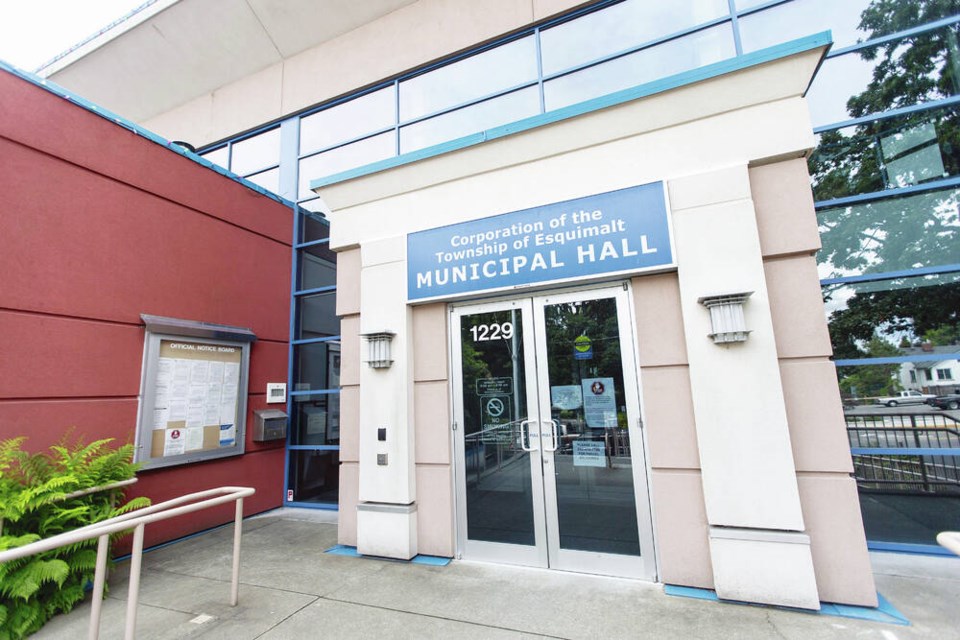Esquimalt is the latest municipalitiy in Greater Victoria to require property owners to provide assistance and compensation to tenants displaced by development.
This week, Esquimalt council adopted a tenant assistance policy that would require owners to help renters being evicted due to the demolition or renovation of rental buildings of five units or more.
Owners would have to provide relocation assistance and compensation for moving expenses, rent and support for tenants that need the additional help.
Tenants would also have the right of first refusal to move into the replacement rental units and to pay rent 20 per cent below the market rate.
Close to 80 per cent of the municipality’s purpose-built rental stock was built before 1990 — much of it near Esquimalt High School, Admirals Road and Esquimalt Road. It forms the bulk of the more affordable rental housing market in Esquimalt.
Proponents of tenant assistance policies believe they encourage developers to build multi-family units on consolidated single-family lots because of the higher costs of redeveloping multi-family buildings.
Most of the new multi-family housing construction in Esquimalt now underway is being built on consolidated single-family home lots, according to Bill Brown, director of development services for Esquimalt. “There’s very few instances where there’s actually been an apartment building knocked down and replaced.”
Coun. Tim Morrison said told council that Esquimalt developers have already largely voluntarily adopted the tenant assistance policy and he saw no issue in formalizing the requirement. “It is important that we do whatever we can to make sure we’re not making it worse for our residents.”
Just over half of those living in Esquimalt are renters, according to 2021 census data.
Five out of the 13 capital region municipalities now have tenant assistance policies.
Victoria’s policy was the first — enacted in 2018 — and the most comprehensive, covering all rental properties, including garden and secondary suites.
The policy was revised in 2021 to increase the discount from 10 per cent below current market rate to 20 per cent for returning displaced renters.
Sidney’s tenant assistance policy, adopted in 2019, requires developers to offer a comparable unit in the new development “at rents within 10 per cent of the tenant’s current rent level,” but only applies when three or more households are affected by a redevelopment.
Saanich’s policy, , offers the right to a new suite at a 20 per cent discount from market rate for tenants when rezonings result in the permanent displacement of five or more tenant households.
View Royal’s policy, adopted in July, has a lower displacement threshold of three affected households and a higher discount for returning renters, at 25 per cent.
Pam Hartling, Saanich housing planning and policy manager, said that Saanich’s threshold of five displaced households — which was also adopted by Esquimalt — was decided after extensive engagement with renters and housing providers with the goal of protecting the municipality’s purpose-built rental stock.
While Hartling acknowledged that the discount for renters choosing to exercise their right to return could raise costs for the other units, she said there’s not a lot of take-up among tenants.
“We didn’t get a lot of pushback from market developers about this clause,” she said.
At Esquimalt’s council meeting on Monday, some councillors were hesitant about adopting the policy after hearing concerns about increased developer costs from the Urban Development Institute, though it eventually passed unanimously.
Kate Alys, a member of the Victoria Tenants Union, a tenant advocacy group, said while they welcome more tenant assistance policies in Greater Victoria, people are still falling through the cracks. “Someone renting a single-family home or someone renting in a duplex should really have just as much security and peace of mind as someone living in a large apartment complex.”
Tenants also can’t exercise their right to return if a long-standing rental residence is redeveloped into a building where the units are for sale and none are for rent, she said.
“If a landlord wants to develop the property and renovate it, there’s that financial incentive to just get your money upfront and not worry about continuing this same affordable tenancy or even a market-rate tenancy.”
Asked whether the province would consider a province-wide policy for tenants displaced by development, the Ministry of Housing said staff continue to explore options.
>>> To comment on this article, write a letter to the editor: [email protected]



